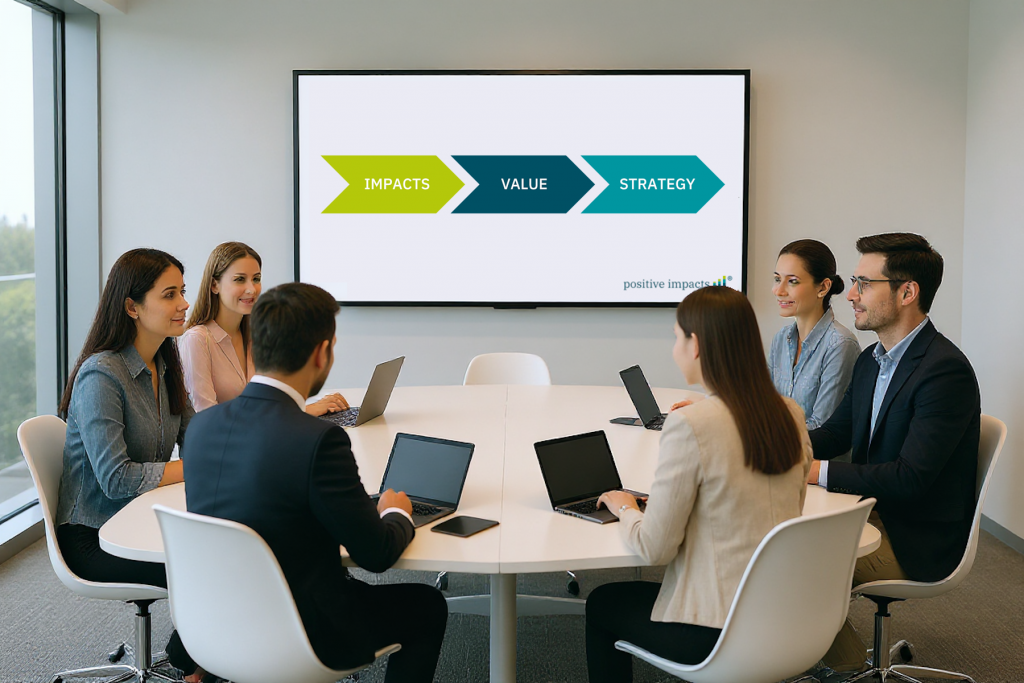Five years ago, we started Positive Impacts (PI) with the idea that sustainability should not be about “feel-good” reporting — but about make-good management: measurable impacts, financial relevance, and strategic value creation.
1. Quantifying What Matters: The PI Impact Accounting Framework
Our Impact Accounting Framework enables organizations and investors to measure positive and negative real-world impacts across 14 indicators and six topics — all linked to science-based thresholds.
These thresholds define when a positive or negative impact becomes material for society, making it easier to evaluate their links to financial performance.
We recently introduced ⏳Climate Years Left — a KPI showing how many years of emissions budget remain if everyone emitted like a given company, portfolio, project, or product.
It translates complex data into a simple and intuitive metric: time left.
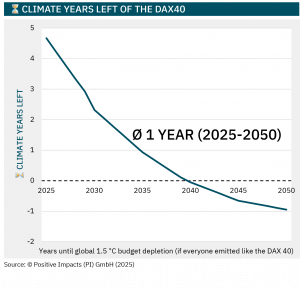
We’ll introduce our other KPIs — covering health, nature, social equity, and taxation — in the coming months.
2. Building Defensible Materiality Skills
Materiality has become one of the most contested topics in sustainability reporting.
Our Materiality Training for Managers helps participants cut through the noise — by connecting impact relevance, financial effects, and strategic decisions.
Participants learn how to:
Quantify impacts using the PI Impact Accounting Framework
Assess their financial relevance via the PI Value & Risk Framework
Derive targeted strategies with the PI Strategy Framework
The training starts November 12 — and there are still a few seats available.
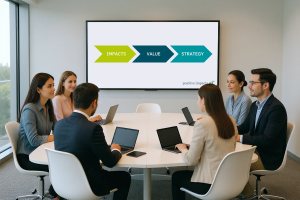
3. Our New Website Is Live
We’ve completely rebuilt positive-impacts.com
to make it easier to navigate:
Explore all three PI frameworks in detail
See how impact accounting connects to financial value and strategy
Discover investor materials and publications
Learn about upcoming trainings and events
The new structure helps organizations of all sizes quickly find where they are on their sustainability ambition curve — from “No Ambition” to “Sustainability Driven.”
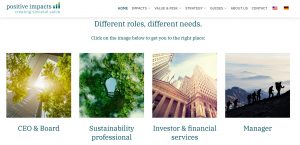
4. From Research to EU Policy
This summer, Patrick de Cambourg (Chairman of EFRAG) personally encouraged us to share our research on “Strategic sustainability management pays off” with members of the European Commission.
We later followed up with detailed input to the EU Omnibus Initiative — advocating for clearer, simpler, and more effective sustainability rules that actually drive impact and competitiveness.
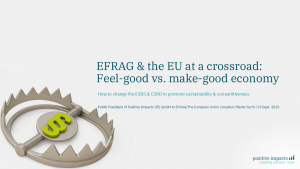
5. On Stage: Biodiversity and the Mittelstand
At a BVMW Biodiversity Conference, I had the opportunity to present the PI Framework to show how companies — even SMEs — can already measure and improve their positive and negative impacts on biodiversity.
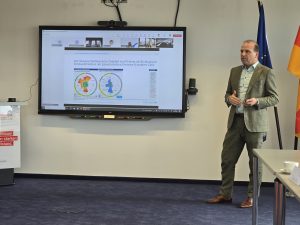
As I said in my speech:
“Companies can strengthen local biodiversity right where they operate and thus make an important contribution—but it is important not to forget their core business: Their impacts may be much bigger in other parts of the value chain.”
You can read the full post here on LinkedIn
6. Looking Ahead
Our journey from impact accounting to strategic sustainability continues.
In the next five years, we aim to make impact and financial accounting truly integrated — enabling a “make-good” economy where companies compete to improve the world, not just report on it.
Thank you for being part of our first five years!

